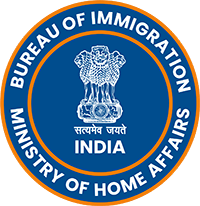The Government of India had introduced the Overseas Citizen of India (OCI) Card and Person of Indian Origin (PIO) Card Scheme to benefit the Indian Diasporas in terms of connectivity with the motherland, hassle free travel to India, friendly investment regime and benefits in social, economic and educational fields.
Who is an Overseas Citizen of India Cardholder?
A person is said to be an “Overseas Citizen of India (OCI) Cardholder” if he/she is registered by the Government of India, under Section 7A of The Citizenship (Amendment) Act, 2015.
Eligibility for registration as an OCI Cardholder
Following categories of foreign nationals (except few categories) are eligible for registration as Overseas Citizen of India (OCI) Cardholder
Who are not eligible for registration as an OCI cardholder?
Merger of Persons of Indian Origin (PIO) Scheme with OCI
The erstwhile Person of Indian Origin (PIO) card scheme has been rescinded by the Government of India and all the existing PIO cardholders shall be deemed to be Overseas Indian Citizens of India (OCI) cardholders. However, all persons who are still holding PIO cards are advised to apply for conversion of their PIO cards into OCI card through OCI Miscellaneous Services.
Surrender/Cancellation of OCI Card
Please visit the website https://ociservices.gov.in or visit the nearest Indian Mission/FRRO for more details.
1. Which territories became part of India after 15.08.1947?
|
Name of the Territory |
w.e.f |
|
Dadra & Nagar Haveli |
11.08.1961 |
|
Goa, Daman and Diu |
20.12.1961 |
|
Puducherry |
16.08.1962 |
|
Sikkim |
26.04.1975 |
2. How to submit the OCI applications?
Applications for registration as OCI Cardholders are to submitted online For further information on applications and documents to be submitted, please visit https://ociservices.gov.in
3. Whether applicants are required to submit hard copies of the applications to the concerned FRRO?
After submitting the application online, foreigners are required to bring the originals of uploaded documents for verification. They are not required to bring hard copies/printouts of the application or the uploaded documents.
4. Are foreigners required to attend a personal interview at the Indian Mission/ FRRO concerned?
Yes. If a foreigner applies for new registration as OCI cardholder, personal interview is mandatory. However, children below 12 years of age are exempted from personal interview.
5. Am I required to provide my biometrics during registration as OCI Cardholder?
In case of applications for registration as OCI cardholders submitted to Indian Missions/Posts abroad, the applicants will have the option of giving biometrics at the application stage or at the Immigration Check Posts on arrival in India. However, they are advised to give biometrics at the application stage itself.
In respect of applications submitted to FRROs in India, biometrics shall be captured at the application stage itself.
6. Who are exempted from providing biometrics?
Applicants above 70 years of age or below 12 years of age would be exempted from biometric capturing.
7. Are children (foreigners) of such Indian national who is not alive entitled for registration as OCI Cardholder?
Yes.
8. How to collect the OCI Card?
In order to collect the OCI Card, the applicant is required to be present at the concerned Indian Mission/FRRO in person or he/she can send a duly authorized person, along with his/her passport for this purpose. However, the applicant should be physically present in the country of issuance of OCI card when it is collected by the authorized person.
9. Will the fee be refunded, in case the registration as OCI Cardholder is not granted?
An amount of USD 250 or equivalent in local currency shall be refunded in case the registration as OCI Cardholder is not granted. However, the processing fees of USD 25 or Rs. 1400/- (in India) is non-refundable.
10. Does the applicant lose his Citizenship in case he is registered as an OCI Cardholder?
No.
11. Can foreign diplomatic and official passport holders not assigned in India travel on the strength of their OCI cards?
Yes.
12. Who is an ‘Ordinarily Resident’?
An ‘Ordinarily Resident’ is a person staying in a particular country or in India for a continuous period of 6 months.
13. Can a OCI Cardholder vote in India?
The OCI Cardholder is not entitled to vote.
14. Is an OCI Cardholder entitled for Constitutional Posts in India?
OCI Cardholders cannot be a member of Legislative Assembly, or Legislative Council or Parliament, cannot hold Constitutional posts such as President, Vice-President, Judge of the Supreme Court or High Court etc.
15. Are OCI Cardholders entitled for appointment to public services and posts in India?
No. For further information, contact the concerned Indian Mission/FRRO.
16. Can OCI Cardholders acquire agricultural or plantation properties in India?
No.
17. Can OCI Cardholder appear for any entrance exams for Indian Educational Institutions?
OCI Cardholders are eligible for appearing for all the Indian entrance tests such as National Eligibility cum Entrance Test (NEET), Joint Entrance Examination (Mains), Joint Entrance Examination (Advanced), All India Pre Medical Test or such other tests. Provided that the OCI cardholder shall not be eligible for admission against any seat reserved exclusively for Indian citizens.
Passport is the primary travel document. OCI is only a life-long visa.
Stay of foreigners in India without a valid passport is illegal even if he or she is an OCI cardholder. Hence, it is necessary that OCI cardholders staying in India should be in possession of a valid passport and OCI card at all times of his/her stay in the country .
Foreigners registered as OCI Cardholders and staying in India are exempted from the requirement of Registration with jurisdictional FRROs.
The ‘U’ (Universal) visa sticker on the foreign passport of OCI cardholders is dispensed with.
Foreigners who intend to submit their applications for registration as OCI cardholder to a jurisdictional FRRO in India, should be ‘Ordinarily Resident ’, which meanshe/she should stay in India for a continuous period of 6 months .
OCI Cardholders shall also require Protected Area/Restricted Area Permit (RAP/PAP) to visit any place which falls within the Protected/Restricted Area as notified by the Government of India. For more info, please check the ‘Entry to Restricted/Protected Areas’ page on this website.

